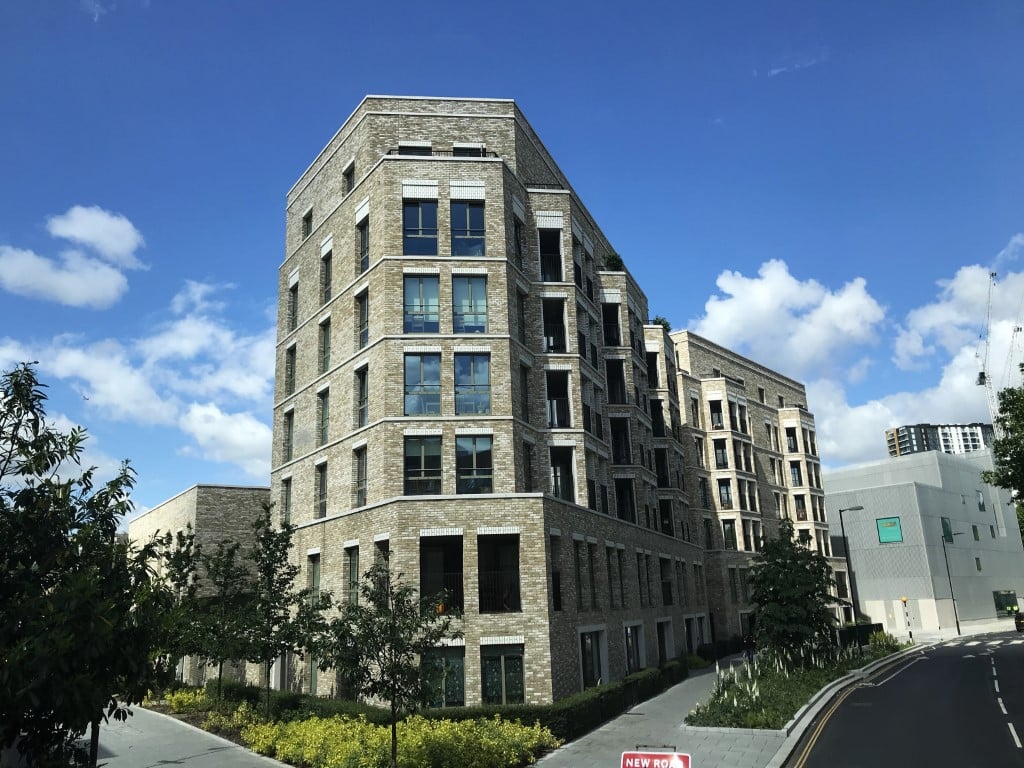Maximizing Profitability in Multi-Family Properties in Atlanta: Strategies for Success
The bustling city of Atlanta presents an attractive landscape for real estate investors, especially in the multi-family property sector. Whether you’re a seasoned real estate investor or just stepping into the world of rental property management, Atlanta’s vibrant economy, diverse population, and strong rental demand offer tremendous opportunities to maximize your rental income. However, achieving success in this competitive market requires more than just acquiring properties; it involves strategic planning, smart investments, and effective property management services that cater to the specific demands of the Atlanta real estate market.
In this blog, we will explore actionable strategies that will help you enhance profitability in Atlanta’s multi-family real estate sector. We’ll delve into market trends, property management best practices, the importance of renovations, effective marketing, and navigating legal regulations. Whether you own a small duplex or a sprawling apartment complex, these insights will guide you toward maximizing your rental income while ensuring long-term success.
Understanding the Atlanta Real Estate Market Landscape
To effectively maximize profitability in multi-family properties, it’s essential to have a comprehensive understanding of the Atlanta real estate market. Atlanta is one of the fastest-growing cities in the United States, and its real estate market is booming. Multi-family investment opportunities are abundant, particularly as the demand for rental units in Atlanta continues to grow due to a steady influx of new residents, including young professionals, families, and retirees seeking affordable living options.
Recent Atlanta real estate trends highlight a favorable market for investors in multi-family properties. The city’s population growth and strong job market are driving demand for rental units, leading to consistent property appreciation and rental income growth. Moreover, the diverse economy, which includes industries such as technology, entertainment, healthcare, and education, contributes to the resilience of Atlanta’s housing market.
A solid market analysis can help you identify key areas where rental demand is highest. Neighborhoods like Midtown, Buckhead, and Old Fourth Ward, for example, are experiencing significant growth in rental demand, while upcoming areas such as Westside and East Atlanta offer promising opportunities for property appreciation and investment returns. By staying informed on these trends, investors can identify multi-family investment opportunities that align with both short-term rental income goals and long-term property value appreciation.
Key Factors to Consider When Investing in Multi-Family Properties
Before diving into multi-family investments, it’s crucial to evaluate several factors that can significantly impact the profitability of your investment.
1. Location Analysis
In real estate, location is everything. Conducting thorough location analysis is paramount for identifying profitable multi-family investment opportunities. The proximity to essential amenities such as schools, public transportation, hospitals, and retail hubs directly influences tenant demand and rental rates. Additionally, properties located in areas with low crime rates and good schools tend to attract reliable and responsible tenants willing to pay higher rents.
2. Property Management Strategies
Effective property management services play a key role in the success of your multi-family investment. From tenant screening processes to communication with tenants, robust property management ensures that your property remains well-maintained and your tenants are satisfied. Utilizing a professional accounting team for financial reporting and staying on top of property maintenance and repairs are also crucial aspects of successful property management.
3. Tenant Demographics
Understanding the tenant demographics of your target area can guide your investment decisions. For example, properties located near universities or downtown areas may attract students or young professionals, while suburban multi-family units may appeal more to families. Tailoring your property to meet the needs of your desired tenant pool increases occupancy rates and tenant retention, which are key drivers of profitability.
4. Zoning Laws
Being aware of local zoning laws is critical for investors in multi-family properties. Zoning regulations can affect property usage, construction, and even renovations. Consulting with a property attorney or local zoning experts can help you navigate these laws and ensure that your property complies with all local requirements.
5. Financing Options
Securing the right financing is essential for your investment’s success. Financing options for multi-family properties vary widely, from traditional mortgage loans to private lending and real estate investment trusts (REITs). An experienced mortgage broker or financial advisor can help you evaluate the best financing solutions based on your financial goals and risk tolerance.

Effective Property Management Techniques to Boost Profitability
Efficient property management is at the heart of a profitable multi-family investment. Here are some essential techniques to boost profitability through property management:
1. Tenant Retention Strategies
Maintaining high tenant retention rates is crucial for reducing vacancies and ensuring a steady income stream. Implementing tenant-friendly policies such as responsive maintenance, fair rent pricing, and open communication with tenants can lead to longer lease agreements and greater tenant satisfaction.
2. Maintenance Efficiency
Timely and cost-effective property maintenance and repairs not only keep tenants happy but also protect the value of your investment. Establishing preventive maintenance schedules, addressing tenant repair requests promptly, and outsourcing specialized tasks to reliable vendors can improve overall maintenance efficiency.
3. Rent Collection Processes
Streamlined rent collection processes contribute to a steady cash flow. Offering multiple payment options, such as online payments, and maintaining clear communication with tenants about due dates and late fees can help minimize rent collection issues.
4. Improving Tenant Satisfaction
Providing excellent customer service, maintaining clean common areas, and offering amenities such as laundry facilities or fitness centers can significantly improve tenant satisfaction. Happy tenants are more likely to renew their leases and recommend your property to others, reducing turnover and vacancy rates.
Enhancing Property Value Through Renovations and Upgrades
Incorporating value-add renovations and cost-effective upgrades can drastically enhance your property’s appeal and, in turn, increase rental rates and profitability.
1. Curb Appeal Improvements
First impressions matter, and the exterior of your property is the first thing potential tenants see. Simple curb appeal improvements such as landscaping, fresh paint, and modern lighting can make your property more attractive and inviting.
2. Energy-Efficient Installations
Installing energy-efficient appliances and fixtures, such as LED lighting, smart thermostats, and low-flow plumbing fixtures, not only reduces utility costs but also appeals to environmentally conscious tenants. These upgrades are a long-term investment in both reducing operating costs and boosting property value.
3. Modern Amenities
Providing modern amenities that appeal to today’s tenants is another way to increase your property’s value. Features such as in-unit washers and dryers, high-speed internet, updated kitchens, and fitness centers are popular with renters and can justify higher rental prices.
The Importance of Marketing Your Multi-Family Property Effectively
Effective digital marketing strategies for rentals are essential in attracting qualified tenants and minimizing vacancy rates. Here are some marketing techniques to consider:
1. Social Media Advertising
Platforms such as Facebook, Instagram, and LinkedIn offer targeted advertising options that allow you to reach specific demographics. Social media advertising for properties can be an excellent way to showcase your property’s features, share virtual tours, and engage with potential renters.
2. Listing Optimization Techniques
Optimizing your online listings with high-quality photos, engaging descriptions, and accurate pricing is critical for attracting prospective tenants. Additionally, using relevant keywords, such as “modern apartments in Atlanta,” can improve your listing’s visibility in search engines and rental platforms.
3. Open House Events
Hosting open house events can be a powerful way to showcase your property to multiple potential tenants at once. These events allow prospective renters to experience the property firsthand and ask questions, which can expedite the leasing process.

Navigating Legal and Regulatory Challenges in Atlanta’s Rental Market
Understanding the legal aspects of rental property ownership in Atlanta is essential to protecting your investment and avoiding costly disputes. Here are some key legal considerations:
1. Landlord-Tenant Laws in Georgia
The landlord-tenant laws in Georgia cover a wide range of issues, including security deposits, lease agreements, and tenant rights. Familiarizing yourself with these laws is crucial to ensuring compliance and avoiding potential legal issues.
2. Eviction Processes
The eviction process in Georgia can be complicated and must be handled correctly to avoid legal repercussions. Consulting with a property attorney or property management service can help you navigate the eviction process while complying with local regulations.
3. Fair Housing Policies
Compliance with fair housing policies is a legal requirement for all property owners. Ensuring that your rental policies do not discriminate against tenants based on race, religion, gender, or other protected categories is not only the law but also good business practice.
4. Legal Considerations for Property Owners
Other legal considerations include staying compliant with local building codes, zoning laws, and safety regulations. Regular audits of your property’s compliance with local regulations can help you avoid legal penalties and maintain a positive reputation in the community.
Conclusion: Take Action Now to Maximize Your Profitability in Atlanta’s Multi-Family Real Estate Market!
Investing in multi-family properties in Atlanta offers exciting opportunities for profitability, but success requires a strategic approach. By understanding the local real estate market, focusing on effective property management, investing in property upgrades, leveraging marketing techniques, and navigating legal challenges, you can significantly increase your rental income and enhance the value of your properties.
Take the necessary steps today to maximize your rental income and establish yourself as a successful investor in Atlanta’s dynamic real estate market. Whether you’re considering your first investment or looking to optimize an existing property, the right strategies will ensure you achieve sustainable growth and long-term success.
Are you ready to unlock the full potential of your multi-family property investments in Atlanta? Contact LivingInTown Realty Group today to learn more about how our property management services, real estate investment expertise, and commitment to maximizing profitability can help you succeed in the Atlanta market.

